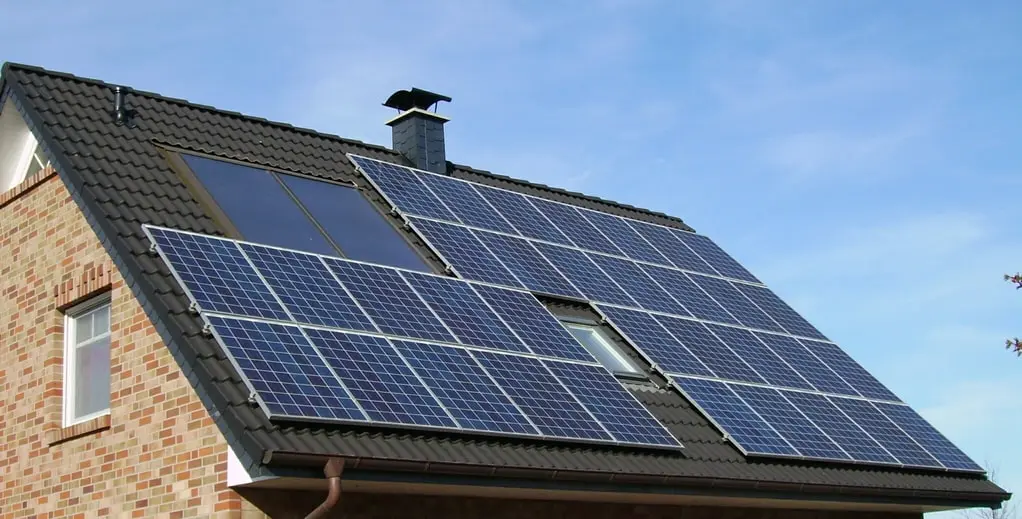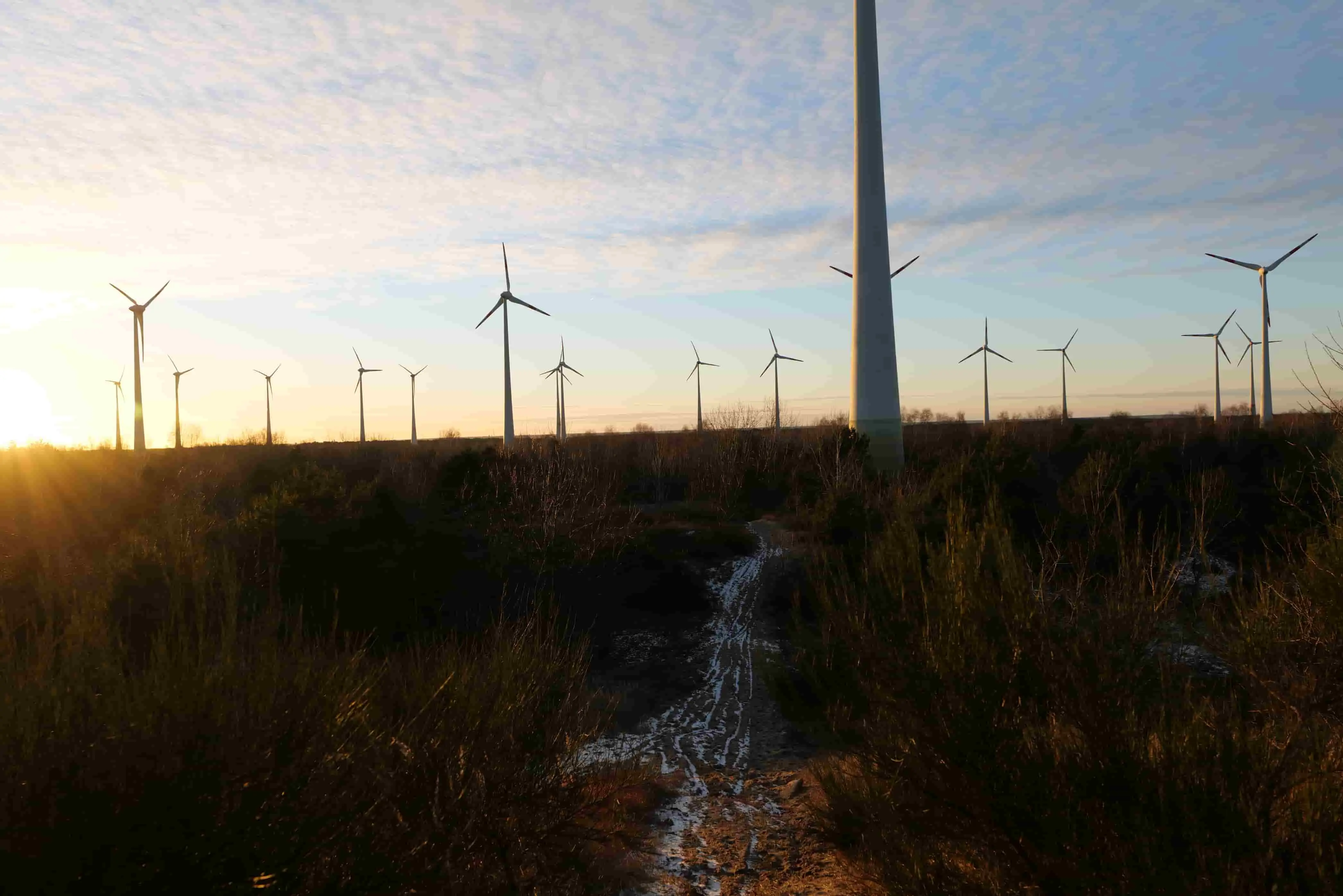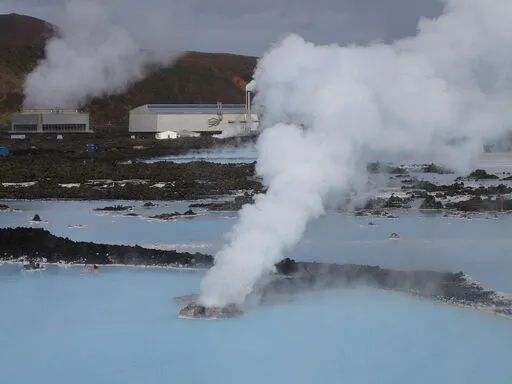Energy management definition
Human civilization relies on several sources of energy: the sun, plants and animals in various forms, the splitting of atoms, gravity, the heat of the Earth, and rocks. These sources yield numerous forms of energy, including firewood (plants) and dung (animals) to nuclear power (split atoms), tidal (gravity), coal (a rock), and many more.
Sources of energy can be abiotic (not derived from living things) or biotic (derived from living things).
Energy can be renewable (you can use it over and over) or non-renewable (once you use it, usually by burning it, then it is gone and you have to find more).
Different forms of energy are harnessed, stored, converted, transmitted, and utilized inside machines or in networks across vast distances.
The entire system of energy that we rely on has to be managed for it to work properly.
Energy management: the planning and operation of systems that produce, distribute, store, and consume energy.
Energy management example
An obvious example of energy management is the system that delivers petrol to your car's tank. A single chain connects the source of that energy to its final user.
Energy management system for oil: The source is an oilfield in the Middle East or under the sea, perhaps, that is drilled, and then the crude oil is stored and transported somewhere that it is refined into different products, including petrol. The petrol is transported to your local petrol station, where you can access it for your vehicle. A combination of government and corporate interests control how much you pay and how the whole energy management system works for oil.
We tend to take energy for granted until we need it. When our phone starts to die, or the lights and heat go out from a winter storm, we remember and start to realize how much we depend on energy management.
These days, energy management involves transitioning to newer, cleaner, and renewable fuels, to help us reach sustainability.
The ultimate goal of sustainability is that one day, we won't ever have to worry about burning up a fossil energy source like oil and running out.
Energy management in geography
In geography, we think about energy as a natural resource that comes from the Earth, the Sun, or a combination of both. We want to know where energy sources on the Earth are located and how extracting that energy affects the environment and people.
We also focus on ways that energy grids can be made better as they connect energy suppliers and energy consumers. We think about new and innovative ways to make the places we live more energy-efficient and sustainable.
Energy management objectives
Energy management, in the UK or anywhere, involves several core principles. The overall idea is that no longer are we just going to get energy where we can, at the cheapest price, and use it up as fast as we need to. To build a sustainable world and reduce our carbon emissions, we keep these important objectives in mind:
Managing the production of energy
We need energy production that follows environmentally- and socially-friendly practices. For example, countries that build wind turbines need to be mindful of the supply of wind (the more, the better), but also how long the turbines will last. They need to use turbines in places that don't harm local livelihoods or the environment.
Managing usage of energy
Consumers should reduce their use of energy. Better technology and educational campaigns can help. Just about everyone and everything can become more energy efficient.
Saving energy
This means turning out the lights when you leave a room, not idling your engine, not running your air conditioner so cold or turning your heat up so high, etc. Industries have found many ways to reduce their energy use. Cars running on petrol can get more kilometres per litre. Machines can be built to use less energy. Light bulbs can consume less electricity. And so on.
Cutting down energy waste
A lot of energy is wasted out there. Cities often do not take advantage of the many ways that their buildings, roads, and parking lots can be made more efficient. Buildings waste energy through walls and roofs that do not trap enough heat in the winter, and/or trap too much heat in the summer, for example.
Waste also happens in the transmission of energy along powerlines, and in many other ways, sometimes through the inferior quality of the material used.
Cutting down on how much energy people want and need
Managing usage is reducing what people need. In places with good public transportation systems, like London, it seems obvious that using your personal vehicle is not completely necessary. In the US, a country based on personal automobiles, public transportation outside of the biggest cities is expensive and infrequent, so it's hard to get people to stop using their private automobiles and wasting energy.
When fuel prices rise, people find themselves cutting down in many areas of energy use. They may not turn the air-conditioning so cold or turn the heat up so high after they see the skyrocketing bills. Even if and when costs go down, people often decide to change their habits and end up wanting and using less energy.
Reducing emissions of carbon dioxide (CO2)
Reducing carbon emissions to slow down climate change is central to all the above goals, However, there aren't really enforceable 'punishments' for not reducing emissions, so some of the largest countries flaunt these rules.
Advantages and disadvantages of energy management
The UK and all societies have the option to continue the way they are now, using up fossil fuels like there is no tomorrow, and worrying about it later. However, there is a growing consensus that we need to change our energy management to renewables.
Disadvantages
It may come as a surprise to you that the energy management systems of the future, running partly or wholly on renewable sources, are associated with various disadvantages. It is very helpful for you to know about these, and research them on your own to see what you really think about each energy source. Also, you can read our articles on Renewable Energy Sources and Non-Renewable Energy Sources to become more informed.
Expensive
Let's face it: changing our energy management systems from fossil fuels to renewable energy is an expensive proposition, and someone has to pay for it. For example, changing from vehicles that run on petrol to vehicles that run on electricity generated by 'green' (environmentally friendly) energy means that people have to be able to afford new vehicles.
Jobs lost
One argument often heard is that jobs in the fossil fuels industry and related industries will be lost.
Not so environmentally or socially friendly
While renewable energy is less polluting than fossil fuels given that it does not directly result in carbon emissions, there are many environmental and social problems associated with each and every form of alternative energy. Wind turbines are dangerous to flying creatures like birds, for example, as are solar panels.1 Hydro projects flood huge areas used by human beings and other species and present many other risks.

Fig. 1 - Rooftop solar panels
Still relies on non-renewable resources
It takes enormous power to mine the Earth, and all energy systems rely on metals, plastics, and other materials that are not derived sustainably. Electric cars run on renewables (as long as the electricity does not come from fossil fuels), but are not made of renewables.
Just can't provide us the energy we need
To run everything we have now, and to continue to grow our economies, we have been spoiled, in a sense, by the incredible power provided by fossil fuels. It is not clear whether and how many wind turbines, solar panels, hydro projects, and other infrastructure we will need, and how much land it will cover, to provide that same amount of energy.
What about nuclear energy? Nuclear power presumably would be able to provide most of our energy sustainably and without carbon emissions, but because of the dangers of radiation leaks and other issues, nuclear power plants are not often seen as a feasible option. The UK, however, currently gets over 20% of its power from nuclear plants, and more are slated to be opened. Another country investing heavily in nuclear in India.

Fig. 2 - Wind turbines in Germany
Advantages
There are many advantages to changing to renewables. We discuss some below. You should know, however, that for the foreseeable future, our energy management is targeted to actually combine the effective and efficient use of both renewables and non-renewables.
Jobs gained
Numerous new jobs are predicted to be created in addition to the jobs available for those switching over from fossil fuels industries that will eventually disappear.
Sustainable and carbon-friendly
One of the main reasons to promote renewables and shelve non-renewables is that their use does not directly result in carbon emissions. Because the forces that power renewables- the heat of the Earth itself (geothermal), the Sun's energy, gravity that allows rivers to flow, tidal forces of the Sun and Moon, and the movement of air- are natural processes, they will continue as long as people and the Earth are around.
From this point of view, it makes little or no sense to be so completely reliant on energy from fuels we are burning up and using up.
Safe for people and the environment
Renewables are safer than non-renewables. One huge part of this is health- people no longer have to breathe in the toxic fumes associated with coal, for example. Also, there will no longer be oil spills to destroy the oceans and rivers.
Energy management example
For a fine example of a country that is transitioning its energy management system, let's look at Iceland in the North Atlantic.2 Iceland, amazingly enough, is now 100% reliant on renewable energy for its electricity. That means no polluting coal. And at last count, of Iceland's total energy, 85% was supplied by renewables.
The geography of Iceland has been key in this transition. Iceland is in an active volcanic zone with many sources of geothermal heat. Geothermal energy is indeed important and fulfills two-thirds of the country's needs. And then there are its many rivers and waterfalls: another fifth of iceland's energy comes from hydroelectric sources.

Fig. 3 - Geothermal facility in Iceland
Iceland has made the best use of its own renewable resources, based on its own geography. The fact that Iceland has achieved energy sustainability has been greatly inspiring to the rest of the world.
In essence, every country can focus on finding and using renewable sources that its geography provides. Places with abundant sunlight can focus on solar, places with abundant running water can focus on hydro, and so forth. The mix of solutions for each region and country is different, but the common factor is that by relying on energy sources that are close by, people can see and control the problems that those energy sources cause on societies and the environment.
Energy Management - Key takeaways
- Our civilization depends on fossil fuels and particularly oil and coal for energy production, including electricity, but these are non-renewable resources that are running low and that emit carbon dioxide into the atmosphere, causing global warming.
- The UK and many other countries need to manage their energy in such a way that we transition to renewable and clean energy and away from fossil fuels while using our remaining fossil fuels and all our energy more efficiently and less.
- Renewable energy sources will not run out, but they have some problems, including how expensive they are, the fact that they still need components made unsustainably, and various problems associated with animals and plants as well as human societies.
- Energy management can be broadly broken down into a focus on production, transmission or distribution, and usage. In each part of an energy management system, many improvements can be made.
- The end goal of energy management systems is to create sustainability where we are able to have the energy we need without running into problems of scarcity in the future.
References
- Upton, J. 'Solar farms threaten birds.' Scientific American, 2014.
- Árnadóttir, Ragnheiður Elín. 'A geothermal leader: the case of Iceland.' Atlantic Council (website), 2018.
Similar topics in Geography
Related topics to Global Resource Management










